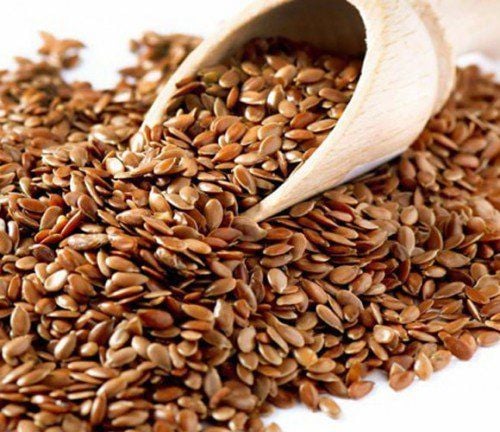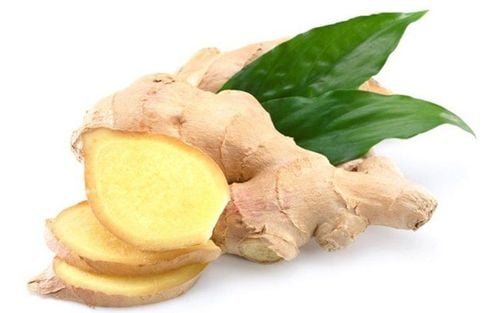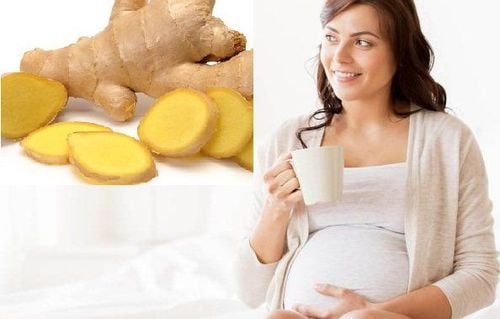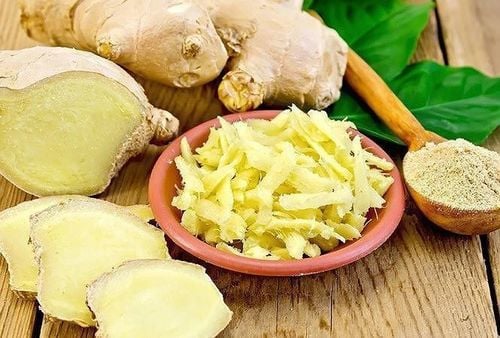Individuals with low testosterone may need to increase their levels by consuming certain foods, such as ginger. Testosterone is a male sex hormone that plays a role in fertility, sexual function, bone health, and muscle mass. In this article, we will list the benefits of ginger in increasing testosterone levels.
1. Ginger and Testosterone
A man's testosterone levels naturally decline with age, decreasing by 1 to 2 percent each year. However, certain medical conditions, lifestyle choices, and other factors can affect the amount of this sex hormone in the body.
While medical treatments can increase low testosterone levels, especially in younger men, individuals can also encourage their bodies to produce more by making certain dietary and lifestyle changes.
Ginger is a flowering plant whose root or rhizome is used as a spice. It is also widely used in folk medicine due to its numerous health benefits in various diseases, including chronic conditions such as type 1 diabetes, type 2 diabetes, cancer, Alzheimer's disease, cardiovascular disease, and depression. The beneficial effects of ginger in these diseases are mainly due to its antioxidants, antibacterial, and anti-inflammatory properties.
The characteristic aroma and flavor of fresh ginger root are the result of several types of volatile bioactive oils (e.g., gingerols, shogaols, and zingerone) that account for about 1-3% of its weight. 6-gingerol is considered the most pungent and the main bioactive compound in fresh ginger. Additionally, ginger contains several antioxidants such as vitamin C, vitamin E, beta-carotene, lutein, lycopene, quercetin, genistein, and tannins. Furthermore, ginger contains essential elements like manganese, copper, selenium, and zinc. Besides, ginger has been found to contain low levels of toxic elements such as cadmium, lead, and nickel.
2. Effect of Ginger on Testosterone
Increasing testosterone production in males and other male species remains a primary goal for many scientists in this field. This is due to the crucial role of testosterone as the primary sex hormone in men. Testosterone plays a significant role in developing male reproductive organs and promoting other sexual characteristics such as body hair growth, increased bone and muscle mass.
Additionally, testosterone is linked to overall health and well-being. Insufficient levels of testosterone in men are associated with a range of disorders/diseases such as infertility, diabetes, osteoporosis, and bone loss.
To date, most studies finding a direct link between ginger and testosterone are laboratory-based. Almost all of these studies have been conducted on diabetic rat models. According to the research, diabetic and hypertensive rats supplemented with ginger and its extracts had higher serum testosterone levels compared to the control group. While ginger-derived compounds (zingerone, geraniol, and 6-gingerol), when used individually, did not affect serum testosterone levels in diabetic rats.
A series of other studies reporting a direct link between ginger and testosterone are reproductive toxicity studies. Generally, reproductive toxicity studies are conducted to investigate the effects of ginger in improving testosterone levels primarily in male rats exposed to toxins. These toxins are, most of the time, chemical compounds (e.g., aluminum chloride, sodium metabisulfite), metals (e.g., lead), or drugs. Examples of drugs used in this context, causing reproductive toxicity, are lamotrigine (anti-epileptic drug), cyclophosphamide (anticancer drug), busulfan (anticancer drug), and carbendazim (fungicide).
According to the general trend, researchers of toxic substances have reduced testosterone levels in experimental animals, and the supplementation of ginger would counteract this decrease. The dosage of ginger used in reproductive toxicity studies varied from ~40 to ~600 mg per day, and the supplementation period ranged from ~2 to ~8 weeks.
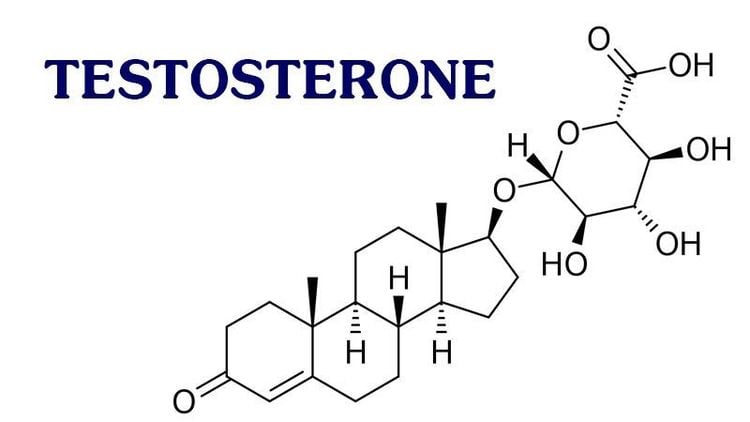
3. Studies on the Effects of Ginger on Testosterone
In males, over 95% of testosterone is produced in the testes, with the remainder synthesized in other organs, primarily the adrenal glands. The testes contain two main types of cells: Leydig cells and Sertoli cells. Testosterone synthesis occurs within Leydig cells, while Sertoli cells utilize the produced testosterone for spermatogenesis. Chemically similar to other androgen hormones, testosterone is derived from cholesterol. A systematic review conducted by Kamtchouing in 2002 revealed that ginger supplementation at a dose of 600 mg/kg for 8 days increased testicular cholesterol levels, potentially a key factor behind the increased testosterone production following ginger consumption.
Ginger is rich in potent antioxidants such as gingerols, zingerone, zingiberene, glucosides-6-gingerol, flavonoids, and volatile oils. These antioxidants protect the reproductive organs from oxidative stress, an imbalance between peroxides (reactive oxygen species like superoxide anion, hydroxyl radical, and hydrogen peroxide) and the beneficial antioxidants that counteract them, and lipid peroxidation. Ginger root has been found to enhance the activity of certain antioxidant enzymes like superoxide dismutase (SOD), catalase (CAT), and glutathione peroxidase (GPx) in various male reproductive organs such as the testes, prostate, and epididymis. Additionally, ginger has been shown to reduce markers of cell damage like aspartate aminotransferase (AST), alanine aminotransferase (ALT), alkaline phosphatase (ALP), and lactate dehydrogenase (LDH) in the testes. Consequently, the reduction in oxidative stress and the enhancement of the antioxidant defense mechanism against peroxides in testicular cells may boost testosterone biosynthesis.
Furthermore, in hypertensive rats, levels of reactive oxygen species and thiobarbituric acid reactive substances (TBARS), a byproduct of lipid peroxidation, were elevated in the testes and epididymis. Excessive TBARS formation can lead to the depletion of glutathione S-transferase and glutathione (GSH), a potent antioxidant. Decreased GSH levels impair the detoxification of peroxides in the testes, negatively impacting testosterone production. Dietary supplementation with ginger root has been shown to prevent the decrease in glutathione S-transferase and GSH levels, thereby reducing peroxides and subsequently enhancing testosterone synthesis.
Research has indicated that reduced blood flow to the testes decreases testosterone production, which can lead to a decrease in sperm production. Dietary supplementation with ginger can enhance testosterone production by stimulating nitric oxide production and increasing blood flow.
Testicular weight is a crucial anatomical indicator of male fertility. Various studies have measured testicular weight as a marker of reproductive capacity following dietary supplementation. Testicular weight is directly proportional to the level of testosterone produced. Male rats supplemented with ginger or ginger extracts for at least a week exhibited higher testicular weights compared to the control group; thus, they had higher testosterone levels, as testicular weight is known to be directly proportional to testosterone production.
Nutritionally, ginger contains a significant amount of essential nutrients that can enhance testosterone production, such as manganese. A study has shown that ginger root contains high levels of manganese. Manganese supplementation has been demonstrated to stimulate luteinizing hormone (LH) secretion in male rats, thereby enhancing testosterone production.
However, to date, all studies finding a direct link between ginger or its derived compounds and testosterone have been systemic laboratory studies, and no human studies have been conducted.
To date, research trends linking dietary ginger to testosterone have revealed that ginger or ginger extracts have an impact on testosterone as testosterone production is enhanced with ginger supplementation.
The mechanisms by which ginger enhances testosterone production primarily involve increasing LH production, increasing testicular cholesterol levels, reducing oxidative stress and lipid peroxidation in the testes, enhancing the activity of certain antioxidant enzymes, normalizing blood glucose levels, increasing nitric oxide production and blood flow in Leydig cells, increasing testicular weight, and recycling testosterone receptors.
References: ncbi.nlm.nih.gov
To arrange an appointment, please call HOTLINE or make your reservation directly HERE. You may also download the MyVinmec app to schedule appointments faster and manage your reservations more conveniently.






